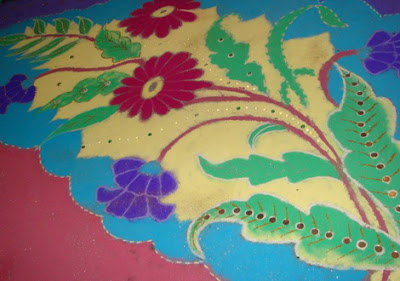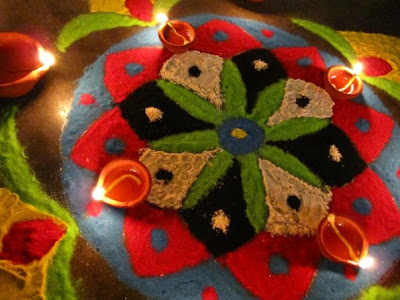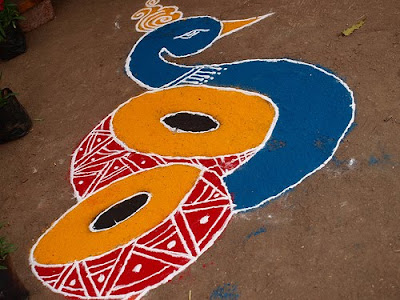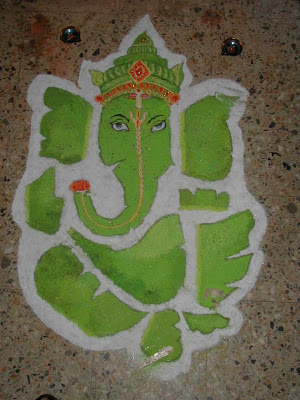The various Rangoli designs and patterns for the Diwali festival is given here. The most striking design is Rangoli flowers dots designs.Rangoli have been derived from Maharashtra, but it is done everywhere, most on Diwali. One of the most well-liked art in Indian women, Rangoli a very old tradition in India, and practiced all over the country. Rangoli is known as Alpana in Bengal, Aripana in Bihar, Madan in Rajasthan, Rangoli in Gujarat and Maharashtra, Chowkpurana in Uttar Pradesh and Kolam in South India.
 The common theme Rangoli are sacred symbols that Mangal Kalash, leaves of Ashoka tree, Om, Swastik symbol, a lighted Deepak, Shree, Lotus and other flowers, vines, trees, rising sun, moon, stars, chakra, fish, birds, elephants , dancing figures, Trident, human figures and geometric shapes like circles, half circles, curves, triangles, rectangles, ovals and rectangles.
The common theme Rangoli are sacred symbols that Mangal Kalash, leaves of Ashoka tree, Om, Swastik symbol, a lighted Deepak, Shree, Lotus and other flowers, vines, trees, rising sun, moon, stars, chakra, fish, birds, elephants , dancing figures, Trident, human figures and geometric shapes like circles, half circles, curves, triangles, rectangles, ovals and rectangles.Footprints goddess Lakshmi into the house was designed by the main entrance of your home or nearby place of worship, which shows the entrance to the prosperity of the home.
Diwali Festival Rangoli Design and Patterns:





















